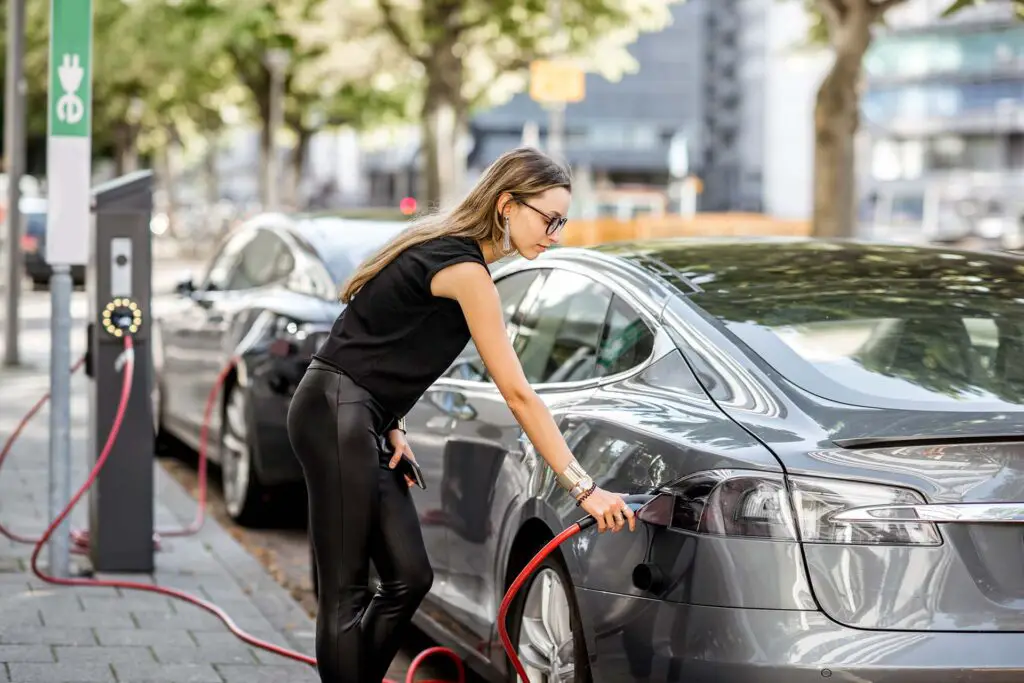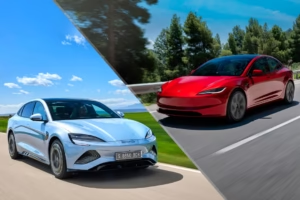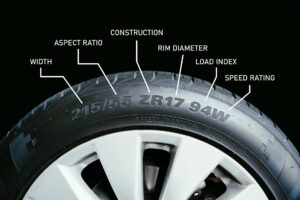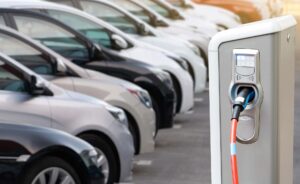With sales of EVs skyrocketing by a whopping 50% since last year, it’s no surprise that you’ve found yourself wondering – should I buy an electric car? The battery-powered revolution on the roads is definitely in full swing. But before you jump on the bandwagon, let’s break down the pros and cons to help you make an informed decision. Buckle up – it’s going to be an electrifying ride!
Should I Buy an Electric Car Now or Wait?
Deciding on an EV purchase, no matter if you’re experienced or new driver seeking for a perfect four-wheeler, hinges on your unique circumstances and priorities, but it’s important to be well-informed about the advantages and disadvantages before taking the leap.
The current EV landscape boasts significant advantages, from environmental benefits and long-term savings to impressive tech and low maintenance. However, challenges persist – upfront costs, limited model choices, and evolving charging infrastructures, coupled with range anxiety.

What Are the Advantages of Buying an Electric Car?
It’s essential to dig deep into the many advantages EVs bring to the table when pondering the question – should I buy an electric car or a hybrid? Both plug-in hybrids (PHEV) and all-electric vehicles have plenty of perks, so let’s dive into some of these compelling benefits.
There Are Plenty of Environmental Benefits
Switching to any type of EV isn’t just about modern conveniences and style. It’s a solid step towards creating a more sustainable future. These battery-powered four-wheelers significantly reduce the carbon footprint, presenting a more eco-friendly alternative to their gasoline-guzzling counterparts.
Here are a few environmental perks of EVs to consider:
- Zero tailpipe emissions,
- Reduction in greenhouse gasses,
- Reduction of noise pollution.
No More Gas Pumps – You Can Expect Long-Term Savings
Ditching the routine visits to gas stations is a refreshing change many EV owners relish. Not only do you sidestep fluctuating gas prices, but the cost to charge a battery-powered vehicle can be notably less than filling up a tank with gasoline. Here’s a brief comparison:
| Type of Vehicle | Average Yearly Cost to Power |
| All-Electric | $998 |
| Plug-in Hybrid | $1,137 |
| Gasoline | $2,425 |
Additionally, the rapid development of charging stations across cities and highways is making the whole ordeal increasingly seamless. As the years go by, the range anxiety will continue to decrease, as you’ll never be too far from a power boost.
The Performance and Technology Advancements Are Hard to Ignore
With the rise of EVs, drivers are not only enjoying a more sustainable ride but are also relishing superior performance features. Their smooth and quiet operation is a stark contrast to the loud rumble of traditional vehicles. And if you think these cars can’t pack a punch, think again. Many models, including the famous Tesla EVs, boast rapid acceleration capabilities, getting you from 0 to 60 in mere seconds.
EVs Are Considered to Be Low-Maintenance Machines
One of the many reasons buyers are leaning towards EVs is the low maintenance they demand. With fewer moving parts than their gasoline counterparts, they require less upkeep – simple as that. For instance, you can wave goodbye to those frequent oil changes and other routine checks that quickly add up over time.

What Are the Disadvantages to Consider Before Buying an Electric Car?
Considering the rapid advancements in vehicle evolution, you might find yourself wondering – should I wait to buy an electric car? And sure, there might be certain aspects that could make you hesitate or ponder if holding off might be a smarter move. So, let’s flip the coin and look at some of these factors.
There Might Be Limited Model Options
When you start researching the best EVs on the market, one thing might become clear rather quickly – there’s a limited variety compared to gasoline-powered modern vehicles. However, the landscape is rapidly changing.
There are the iconic Tesla models that have set a high bar, but other manufacturers aren’t sitting on the sidelines. Brands like Nissan, Hyundai, and Fiat, to name a few, are delving deep into this electrifying game. From plug-in hybrids to fully electric vehicles, many of these companies are launching battery-powered variants of their already popular models.
The Higher Upfront Price Can Be a Problem for Many Potential Buyers
There’s no skirting around the fact that EVs often come with a heftier price tag upfront, especially when compared to their gasoline counterparts. This initial investment might deter some potential buyers, making them think twice before taking the plunge. Just take a look at the comparison of average prices:
| Type of Vehicle | Average Price Upfront |
| All-Electric | $67,000 |
| Plug-in Hybrid | $39,000 |
| Gas | $33,800 |
However, it’s essential to remember that various incentives and rebates can ease this burden somewhat. Plus, when you factor in the potential savings over the long run – think about fuel costs and maintenance. And the like – the playing field begins to level out, making the initial price a bit more palatable.
The Charging Infrastructure Level of Development Depends on Your Location
The state of the charging infrastructure is usually one of the primary concerns for those pondering the question – when should I buy an electric car? Depending on where you live, the availability and convenience of charging stations can vary significantly.
Urban areas generally tend to have a denser network, while more rural locations can sometimes leave EV owners scrambling for a plug. Furthermore, setting up a home charging system can bring its own set of costs and considerations.
Range Anxiety Also Plays a Crucial Role
While many EV models promise impressive mileage on a single charge, it’s essential to differentiate between the manufacturer’s claims and the real-world range. Certain conditions, like colder weather or using other features, can reduce the effective range.
This range discrepancy, coupled with limited driving capacity in some models, can lead to range anxiety – the fear of running out of battery before reaching a charging station. While this is a valid concern, it’s also good to know that the manufacturers are diligently working towards extending these ranges. For example, here’s what the Tesla models can cover so far:
- Tesla Model S – 405 miles (652 km),
- Tesla Model 3 – 358 miles (576 km),
- Tesla Model X – 348 miles (560 km),
- Tesla Model Y – 330 miles (531 km).
You Have to Consider Battery Replacement and Degradation Too
Industry projections place the battery lifespan somewhere between 100,000 and 200,000 miles, which roughly translates to 15 to 20 years. While that’s a pretty decent run, it’s essential to remember that, at some point, a battery replacement might be on the horizon. This isn’t just a financial cost but also carries environmental implications, as the disposal and recycling of old batteries need to be managed responsibly.

What Are the Important Factors to Consider When Deciding if an EV Is the Right Pick for You?
Making the switch is a significant decision, and while we’ve discussed the various pros and cons, there are also personal factors that might tilt the balance one way or the other. So, let’s delve into some crucial considerations:
Your Daily Commute
A major factor in the EV decision-making process is the length and nature of your daily commute. If your drive to work or other daily errands is within the range of the average EV, then it can be an excellent fit. But if you’re often traveling longer distances without convenient charging points, you might need to think twice or opt for a hybrid.
Local Incentives and Policies
Where you live can significantly impact the true cost and convenience of owning an EV. Many states or cities offer tax breaks, rebates, or other incentives for potential buyers. Therefore, make sure to familiarize yourself with local policies and incentives before making a purchase.
Future Resale Value
Like any other vehicle, EVs depreciate over time. However, with the rapid advancement in technology, newer models might outshine older ones quickly, affecting resale value. It’s worth considering how long you plan to keep the car and what kind of value it might retain when you’re ready to move on.
What Does the Future Have in Store for EVs?
Throughout our discussion, it’s evident that the future of EVs looks incredibly promising. As technological advancements continue to evolve, we can expect batteries to become more efficient, delivering longer ranges at a reduced cost. Manufacturers are also diligently working to expand their EV line-ups, offering a more diverse selection of models to cater to different tastes and budgets.
However, the journey isn’t without challenges. Questions remain about the sustainability of battery production and how rapidly the global infrastructure can adapt to this change. Nevertheless, as consumer demand rises and innovations surge, EVs are well on their way to becoming a dominant force in the automotive landscape.
It’s up to You to Decide if It’s Time to Make This Electrifying Switch
The EV world is vast, thrilling, and packed with potential, but it also comes with its fair share of speed bumps. So, to plug in or not plug in? Ultimately, your choice should align with your personal, financial, and environmental goals. Whether you decide to roll with an EV or hold out a bit longer, staying informed is your best co-pilot. Until next time, may your road trips be ever-electrifying!
Frequently Asked Questions
How Do Electric Vehicles Perform in Extreme Weather Conditions?
EVs can experience reduced range in extremely cold or hot conditions due to battery performance being affected by temperatures. However, manufacturers are constantly improving technology, and many modern EVs come equipped with thermal management systems to mitigate these issues.
How Long Does It Typically Take to Charge an Electric Vehicle?
The charging time varies based on the type of charger used and the vehicle’s battery capacity. While regular home outlets (Level 1 charging) can take overnight or longer, fast-charging stations (Level 3) can juice up an EV to 80% in just 30 minutes to an hour, depending on the model.
Are Electric Cars Truly Zero Emission Vehicles?
While EVs don’t emit tailpipe pollutants like traditional gasoline cars, the overall environmental impact depends on the electricity source. If the power comes from renewable resources, the emissions are minimal. However, if coal-fired plants provide electricity, emissions might be higher, albeit still generally lower than conventional vehicles.








